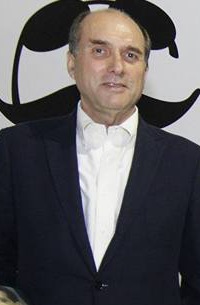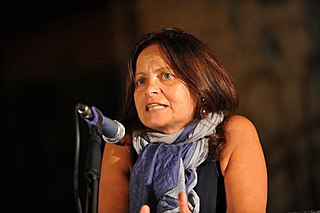Related Research Articles

The Trilateral Commission is a nongovernmental international organization aimed at fostering closer cooperation between Japan, Western Europe and North America. It was founded in July 1973, principally by American banker and philanthropist David Rockefeller, an internationalist who sought to address the challenges posed by the growing economic and political interdependence between the U.S. and its allies in North America, Western Europe, and Japan. The leadership of the organization has since focused on returning to "our roots as a group of countries sharing common values and a commitment to the rule of law, open economies and societies, and democratic principles".
Brian Dorsey Farrell is a professor of biology and curator in entomology at Harvard University's Museum of Comparative Zoology. As of 2014, Farrell is also Director of the David Rockefeller Center for Latin American Studies at Harvard University.
Kenneth Robert Maxwell is a British historian of Iberia and Latin America, educated at St John’s College, Cambridge University, where he studied under Professor Sir Harry Hinsley, Ronald Robinson, Edward Miller, and Jonathan Steinberg (1960-1963).

Mohsen Mostafavi is an Iranian-American architect and educator. Mostafavi is currently the Alexander and Victoria Wiley Professor of Design at the Harvard Graduate School of Design. From 2008 through 2019, Mostafavi served as the school's dean.
John Henry Coatsworth is an American historian of Latin America and the former provost of Columbia University. From 2012 until June 30, 2019, Coatsworth served as Columbia provost. From 2007 until February 2012 Coatsworth was the dean of Columbia's School of International and Public Affairs (SIPA), and served concurrently as interim provost beginning in 2011. Coatsworth is a scholar of Latin American economic, social and international history, with an emphasis on Mexico, Central America, and the Caribbean.
Jorge I. Domínguez, a scholar of Latin American studies in the United States, taught at Harvard University from 1972 to 2018, when he retired as the Antonio Madero Professor for the Study of Mexico.
Susan J. Pharr is an academic in the field of political science, a Japanologist, and Edwin O. Reischauer Professor of Japanese Politics, director of Reischauer Institute of Japanese Studies and the Program on U.S.-Japan Relations at Harvard University. Her current research focuses on the changing nature of relations between citizens and states in Asia, and on the forces that shape civil society over time.

Steven Levitsky is an American political scientist currently serving as a professor of government at Harvard University and a senior fellow for democracy at the Council on Foreign Relations.
David Verge Fleischer is an American-born Brazilian social scientist and professor.

Thomas Elliott Skidmore was an American historian and scholar who specialized in Brazilian history.

Francisco Antonio Gregorio Tudela van Breugel-Douglas is a Peruvian scholar, diplomat and politician. A former Fujimorist politician and diplomat, he briefly served as the First Vice President of Peru between 28 July 2000 to 21 November 2000, during the brief third term of Alberto Fujimori and also as a Congressman between 2000 and 2001. He also served as Minister of Foreign Affairs during the Fujimori administration and as a member of the Democratic Constituent Congress between 1992 and 1995.
Orlandina de Oliveira is a Brazilian-born, naturalized Mexican sociologist and professor. Her areas of expertise are on social inequality, the status of women and youth, and the dynamics of labor markets. She has earned numerous honors for her academic research from international universities including the University of Texas at Austin, the University of Paris III: Sorbonne Nouvelle, and Harvard University.
Graciela Silvestri is an Argentine architect, Professor of Architectural Theory and a senior researcher at the National Scientific and Technical Research Council (CONICET) in Argentina.
Clubes de Ciencia is a non-profit organization founded in 2014 that organizes hands-on week-long workshops in STEM to kids in developing countries at no cost. The instructors are PhD volunteers from top universities, such as Harvard, Princeton, MIT who organizes the workshops. By combining hands-on experimental learning, on-line exercises and mentorship, Clubes de Ciencia takes a unique approach to educating the millennials in developing countries. In two years, Clubes de Ciencia grew past its Mexico program, to also work in Colombia and Bolivia. Currently, it also operates in Brazil, Paraguay, Peru and Spain.
The Grupo para el Desarrollo Integral de la Capital is an urban planning effort in Havana, Cuba, established in 1987. According to one scholar, it was "created to develop new ways of dealing with the problems created by three decades of neglect" of the city by the state.
Karen Engle is the Minerva House Drysdale Regents Chair in Law and Founder and Co-director of the Bernard and Audre Rapoport Center for Human Rights and Justice at The University of Texas at Austin School of Law. She is also an affiliated faculty member of Latin American Studies and of Women's and Gender Studies. She teaches courses and specialized seminars in public international law, international human rights law, and legal theory.
Terry Lynn Karl is the Gildred Professor of Latin American Studies and Professor of Political Science specializing in comparative politics in the Political Science Department at Stanford University.

Nadia Urbinati is an Italian political theorist. She is the Kyriakos Tsakopoulos Professor of Political Theory at Columbia University.
Marcia Caldas de Castro is a Professor of Demography and Chair of the Department of Global Health and Population at Harvard University. She is well known for studying Malaria and other vector borne diseases, as well as the intersection between urbanization and public health. She is the first Brazilian woman to become a faculty member at Harvard.
References
- ↑ "Books on Latin America from the David Rockefeller Center - Harvard University Press Blog". Harvardpress.typepad.com. Retrieved 16 September 2018.